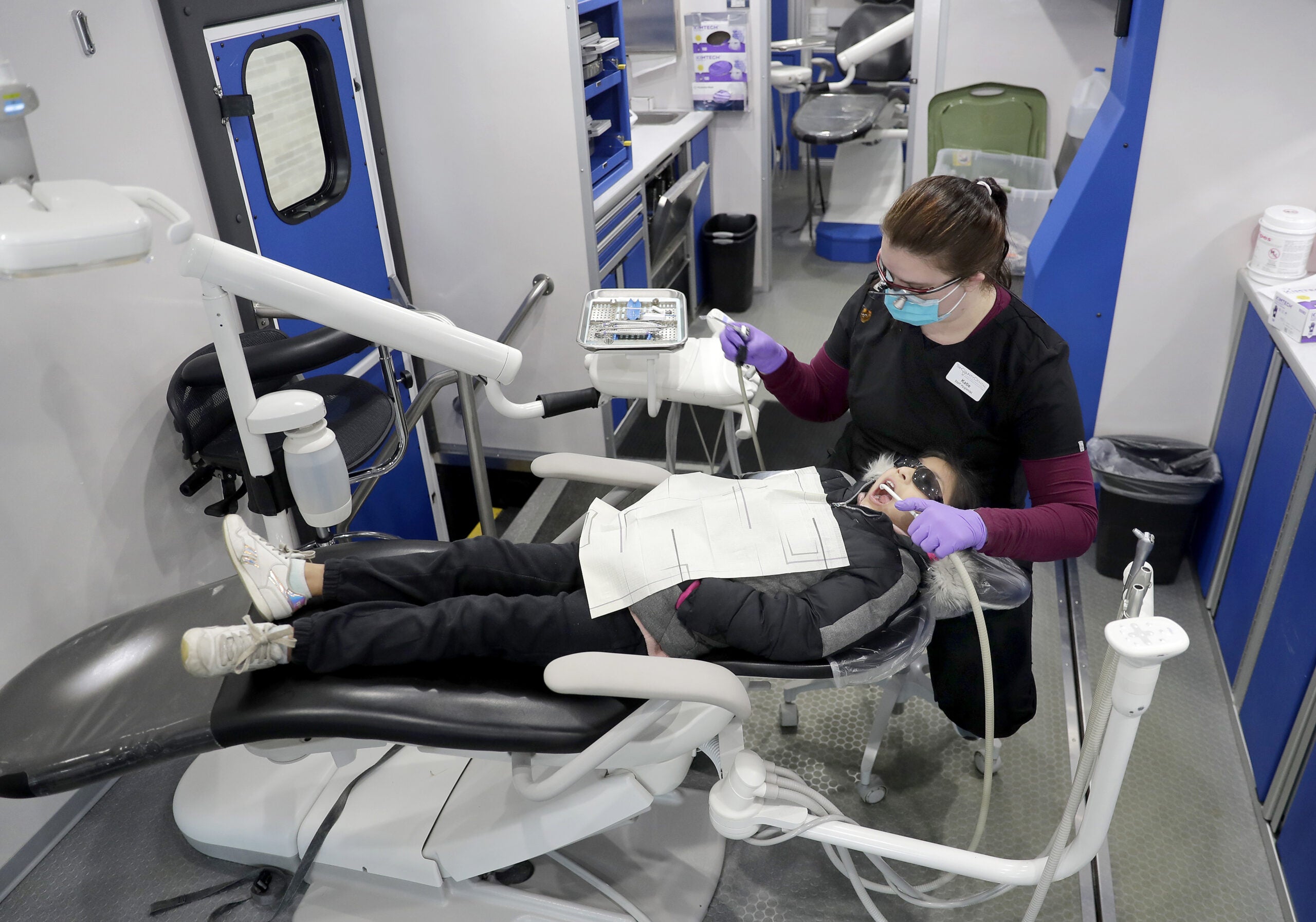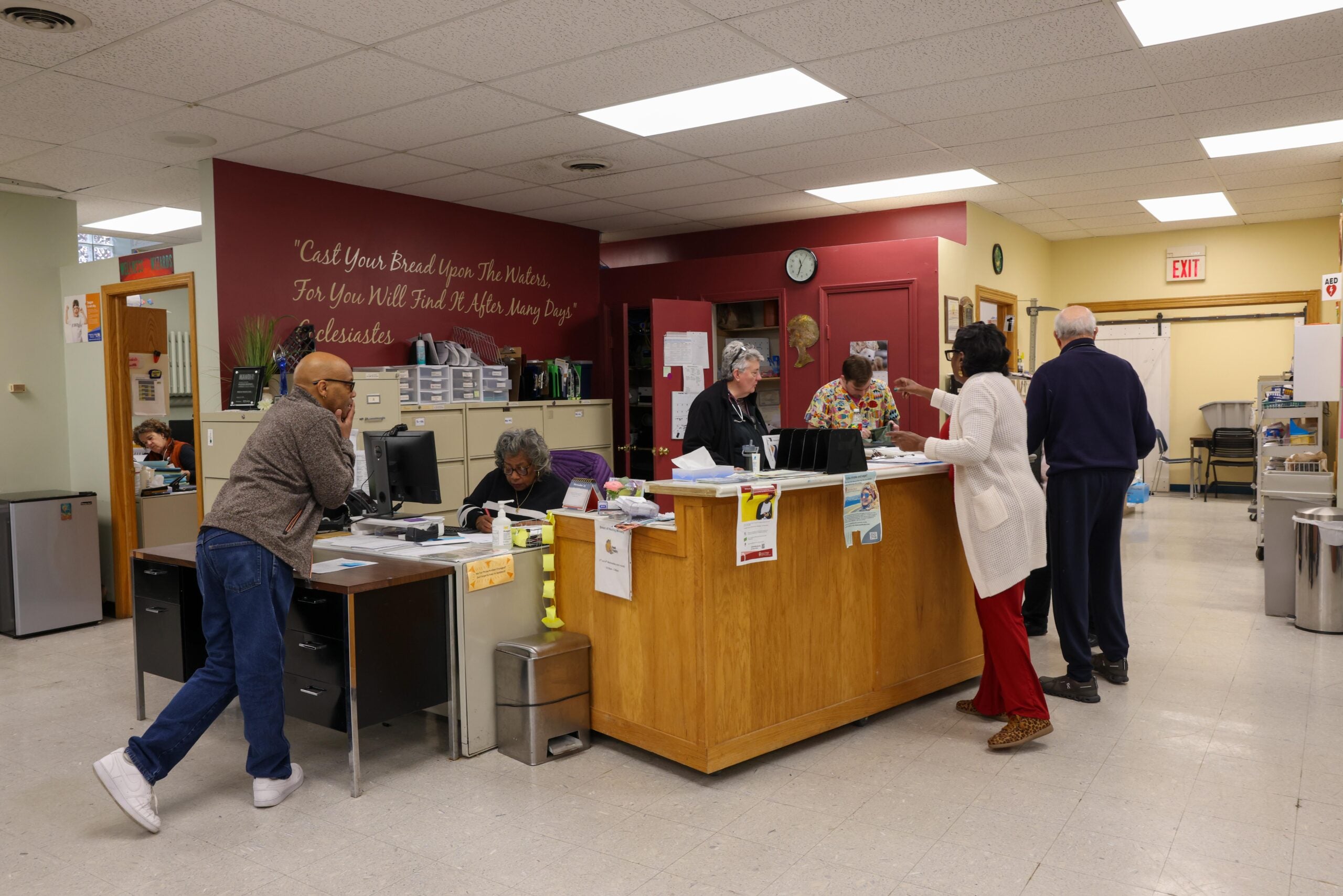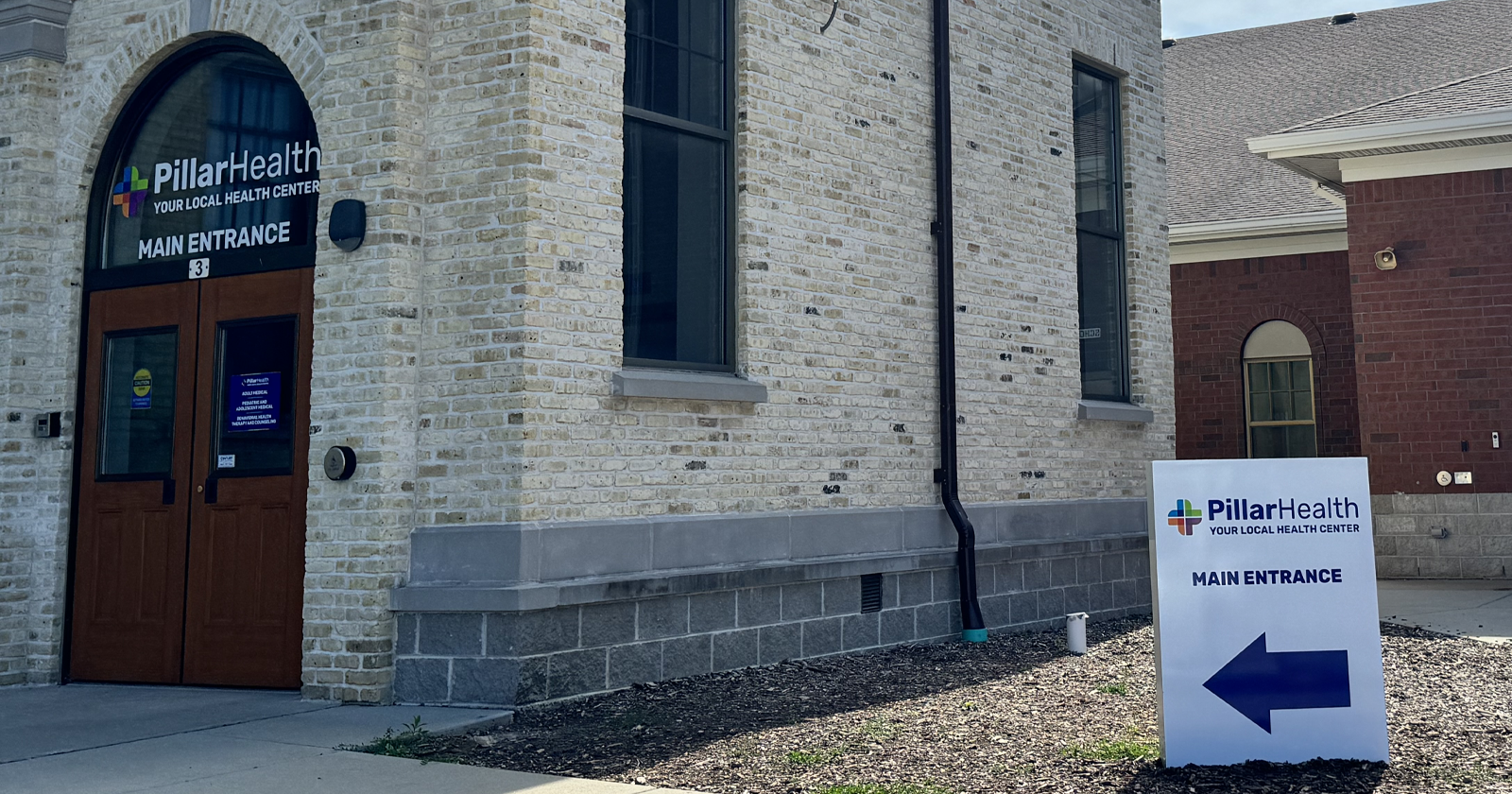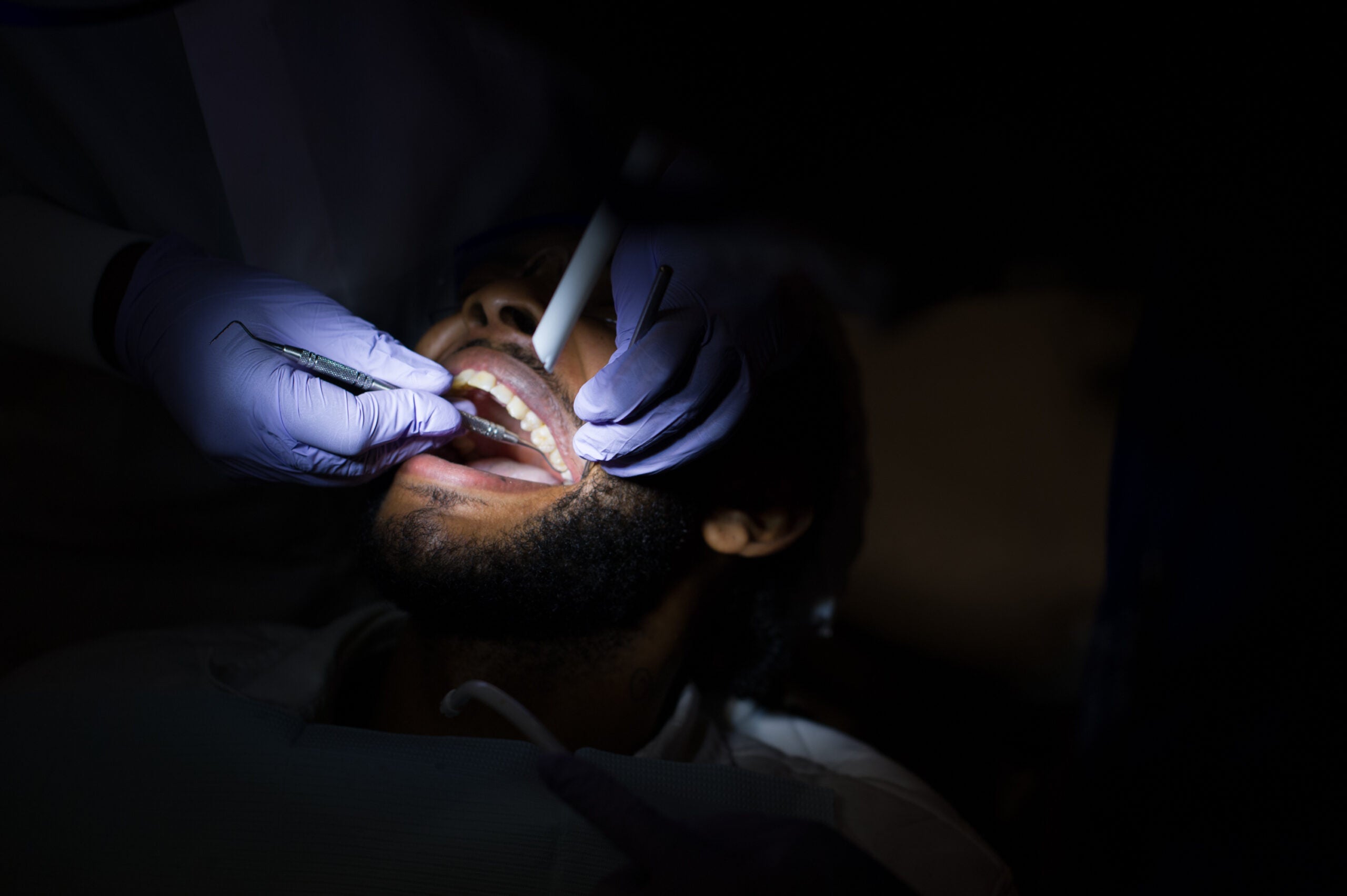When the Odle family had a career change, all five of their kids lost dental insurance.
“Unfortunately, our dental insurance changed, so we didn’t have any for the kids, which was terrifying because we have to,” their mother, Judy said. “It’s so important.”
The Odles were able to start getting care from Tri-County Dental, a volunteer-driven dental clinic serving people in Calumet, Outagamie and Winnebago counties. It was started 20 years ago by four local dentists in response to a need for dental care, especially among lower-income families.
News with a little more humanity
WPR’s “Wisconsin Today” newsletter keeps you connected to the state you love without feeling overwhelmed. No paywall. No agenda. No corporate filter.
The Odles have been going to Tri-County for the past five years, but when Judy was looking for local options before she found Tri-County, she was surprised by how few there are.
Dental care is critical to a person’s overall health, especially in children. But the pandemic and financial constraints have been barriers to families trying to access proper care, causing decreases in visits. Organizations like volunteer-driven Tri-County Dental help fill the gaps and meet thousands of students where they’re at, offering preventive care to avoid emergencies and keep students healthy and able to focus in school.
“When you talk about trying to set up children for success, they have to be in school, they have to learn and if you’re in pain because of tooth issues … that can impact a lot of things,” said Lisa Hintz, community outreach director for Tri-County.
Roughly 90 dentists from throughout the area volunteer to work at Tri-County. There are paid fellowships for new dentists who recently graduated to get experience for a one-year term.
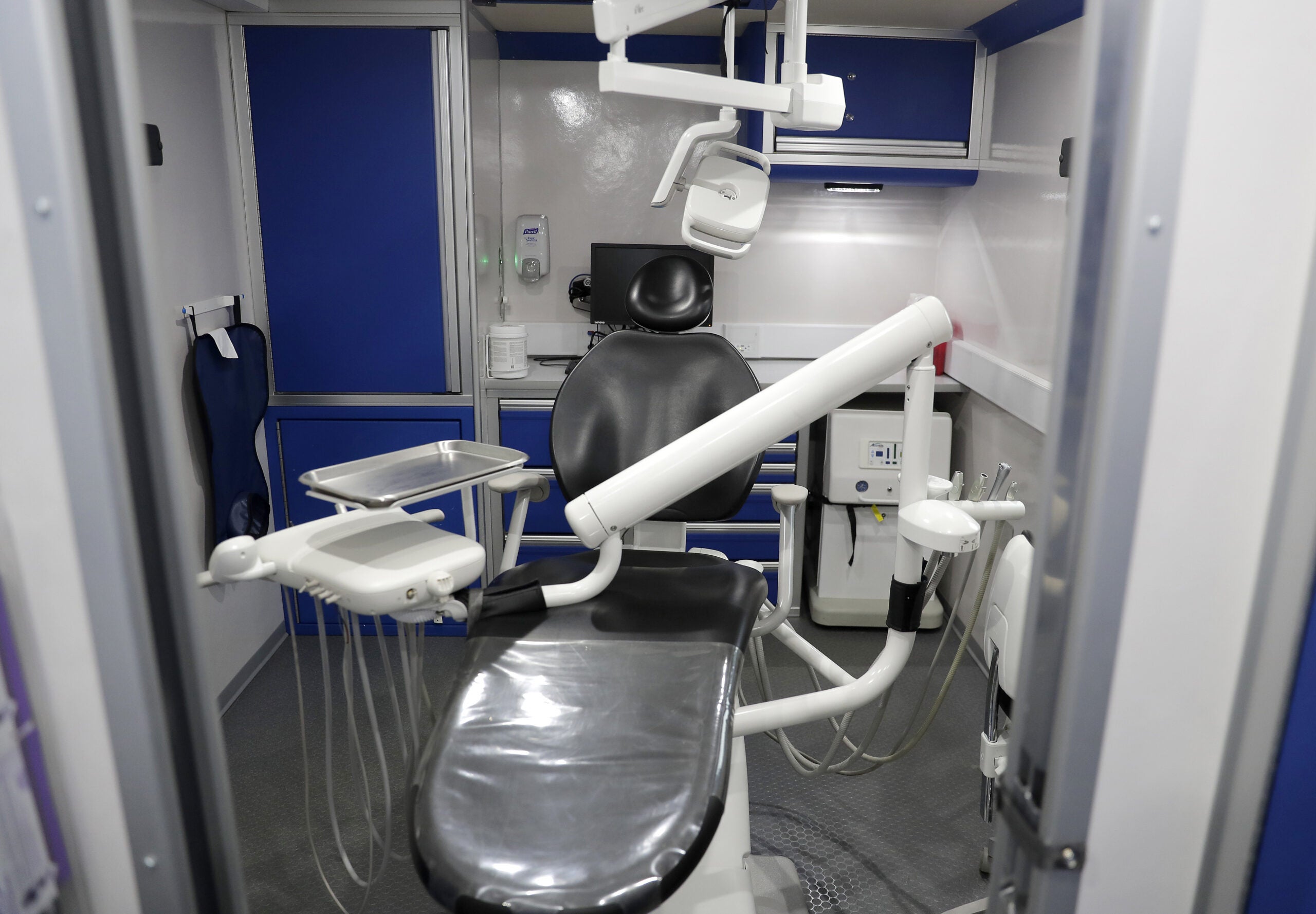
There are income and insurance requirements to be eligible to go to the clinic. Co-pays for regular visits never cost more than $35. But for students who qualify for free and reduced lunch, care is completely free.
“It’s not just about getting white teeth. It’s not just about getting clean teeth. It’s about being healthy overall,” Hintz said.
Proper dental care is critical for children’s health and school attendance
Oral health is a key contributor to overall health and a factor in student success, explained Dr. Russ Dunkel, Wisconsin state dental director and chief dental officer.
Poor oral health can have a multitude of negative consequences for children such as decay, oral pain, sleeping difficulties, speech problems, changes in behavior and difficulty eating, which can affect growth. Those complications can make it difficult for students to concentrate, let alone attend school, Dunkel said.
Dental caries, the disease that causes tooth decay, is one of the most prevalent chronic diseases in children, affecting the permanent teeth of one in four preschoolers and one in six students ages 6 to 11, according to a December 2021 report from the National Institutes of Health.
Students of color and from low-income households are at increased risk, the report said.
Seal-A-Smile targets prevention, but lost some traction during pandemic
One way Wisconsin is working to provide dental care to more students is through the Seal-A-Smile program, which works with school districts to provide students with free sealants to help prevent cavities.
Schools with more than a third of students qualifying for free and reduced lunch are eligible for Seal-A-Smile services. Across Brown, Calumet, Outagamie and Winnebago counties, 95 schools were eligible, according to data from the state Department of Health Services.
From 2014 to 2018, about 56,500 students were seen each year through Seal-A-Smile. The next two years, that was up to almost 74,000 students a year, Dunkel said.
When the pandemic hit, Seal-A-Smile programs couldn’t get into schools because they were closed. The number of students receiving that preventive care dropped dramatically, and decay increased by more than 10 percent, Dunkel said.
This is just one example of how the pandemic significantly affected access to oral health care, especially for students whose only chance to get that care is through school-based programs.
Dental offices were deemed essential operations in Wisconsin, but many of them took only emergency cases, asking patients to postpone elective procedures and care — a recommendation from the American Dental Association at the time.
Limited preventive care dragged numbers down, but even now that offices are back to normal operations, Dunkel said many offices aren’t able to serve as many patients as before the pandemic because of the extra time needed for increased sanitation and sterilization practices.
The pandemic was a barrier for many families getting dental care, but it isn’t the only roadblock. Dunkel said factors such as language, transportation, cost, health literacy and previous poor experiences can get in the way of families accessing proper dental care.
Tri-County is focused on ‘what the patient needs,’ not just what insurance says
“Sahari, would you like a pink, green or purple toothbrush?”
The 7-year-old picked green.
Katie Wheeler, a dental hygienist for Tri-County Dental, handed the second-grader a plastic bag with toothpaste, floss, a green toothbrush and a note to take home saying she’d had her teeth cleaned today at school.
Sahari was one of six students from Appleton Bilingual School who Wheeler would see that particular Tuesday in a dental clinic on wheels parked outside Zion Lutheran Church in Appleton.
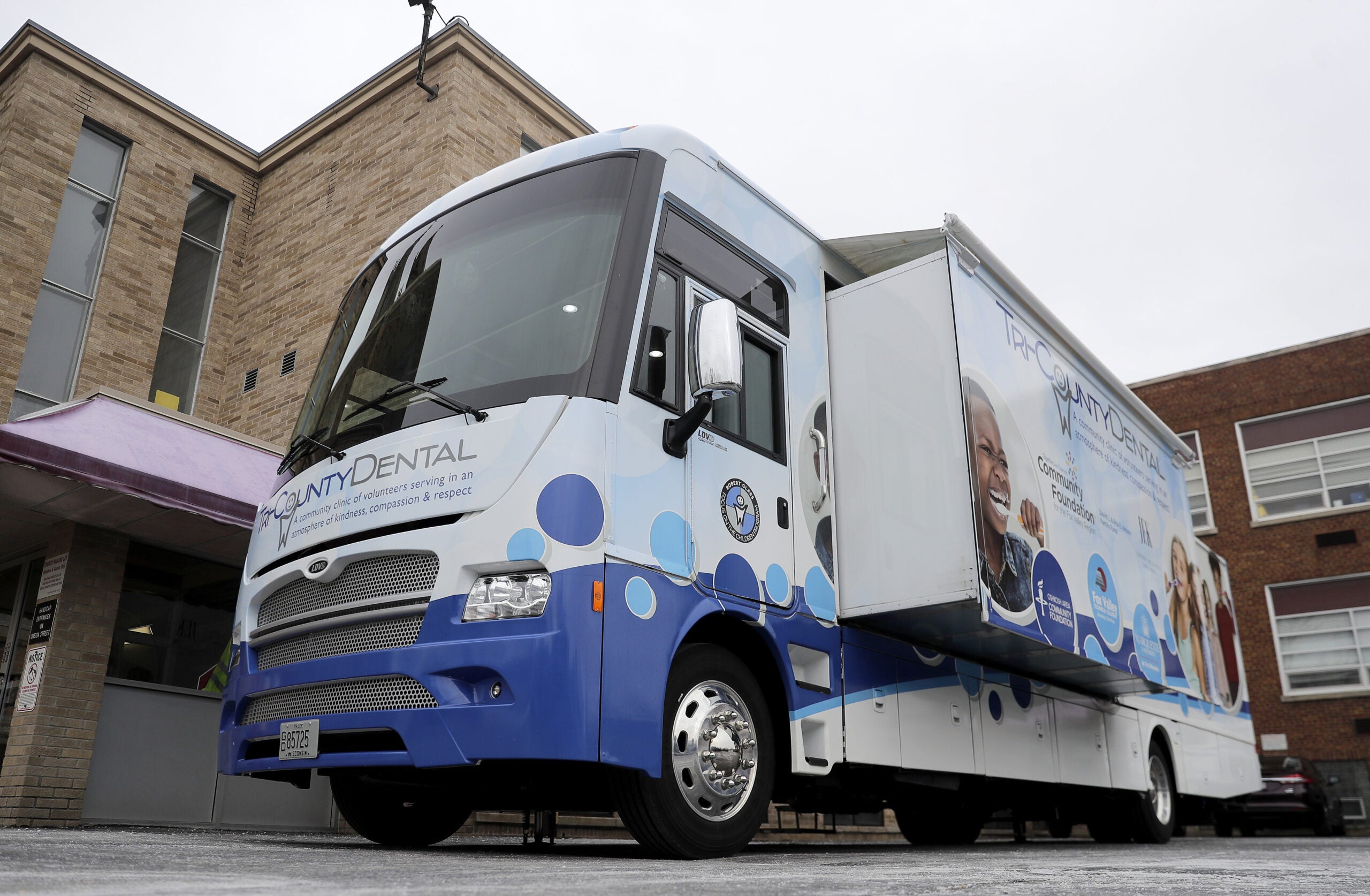
Standing inside the 40-foot bus, it feels like any brick-and-mortar dental office, maybe just a little narrower than normal. There are three patient stations, TVs in the ceiling playing “Finding Nemo” to calm and distract any nervous kids and everything hygienists need for sterilizing equipment and charting.
Wheeler has been a hygienist for almost a decade, spending the last seven years with Tri-County. Her weeks are normally divided up by three days in the mobile clinic and two days in the regular building on Tri-Park Way; east of Fox Valley Technical College and across the street from the Department of Veterans Affairs outpatient clinic.
She enjoys her work with Tri-County because she’s able to “do what the patient needs, regardless of what insurance says.”
In 2022, Tri-County’s student program, Robert Glass Focus on the Children, served almost 3,000 students across 12 school districts, with a majority coming from Appleton and Oshkosh Area school districts.
Ten years ago, Tri-County added the mobile clinic that goes between 41 different schools in six districts almost every day of the academic year to remove barriers to dental care such as transportation. It’s equipped for almost everything from X-rays to cleanings. The only thing that can’t be done on the bus is anesthesia.
Over the past decade, Tri-County has seen an increase in preventive care and a drop in emergency cases with children from 10 percent to less than 2 percent.
What can families do to promote good oral health in children?
Parents and caretakers play a significant role in helping children cultivate healthy oral hygiene habits.
As always, it’s best to consult with your child’s health care providers regarding concerns or potential changes. And the NIH report recognizes that there may be different cultural practices regarding oral health to be cognizant of.
The NIH report offers some tips and practices to consider to promote good oral health in children.
It repeatedly talks about limiting sugar in drinks, such as fruit juices and flavored milks, and snacks. In particular, it suggests avoiding putting babies and young children to bed with bottles or sippy cups filled with sugary drinks which then sits on children’s teeth all night.
In addition to accessing professional dental care for cleanings and other preventive treatments, such as dental sealants, caregivers should encourage healthful habits at home, such as daily brushing and the use of toothpaste with fluoride.
This story is part of the NEW (Northeast Wisconsin) News Lab’s fourth series, “Families Matter,” covering issues important to families in the region. This year, reporters from six news outlets — Green Bay Press-Gazette, Appleton Post-Crescent, Wisconsin Public Radio (WPR), Wisconsin Watch, The Press Times and FoxValley365 — will spotlight the daily struggles families face, dig up solutions and options, and explain why these topics impact not only families, but the whole state.
What would help improve the lives of Northeast Wisconsin families? Write to the lab at families@wisconsinwatch.org or call 608-262-3642 and leave a message with your name, what you’re calling about and phone number.
Reach AnnMarie Hilton at ahilton@gannett.com or 920-370-8045. Follow her on Twitter at @hilton_annmarie.

